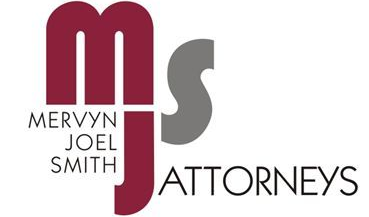Selling a home is far more than listing it and accepting the highest offer. Today, sellers face a complex process.
strategic decisions, legal requirements, and safety considerations
The Mandatory Property Disclosure Form was introduced under the Property Practitioners Act (PPA) of 2022. Without it, estate agents are not legally allowed to list or market your property.
Cobus Odendaal, CEO of Lew Geffen Sotheby’s International Realty, explains that the form is essentially a checklist where sellers disclose the known condition of their property, including structural defects, plumbing and electrical systems, leaks, damp issues, or alterations done without approved building plans. “The form must be completed and signed by both seller and prospective buyer and attached to the sale agreement for the sale to go ahead,” he says.
The disclosure form serves several important purposes:
- Legal Compliance: Agents cannot market or sell a property without a completed form.
- Transparency Builds Trust: Honest disclosure fosters buyer confidence, potentially speeding up the sale.
- Protect Sellers from Future Claims: Declaring known issues prevents future legal disputes.
- Informed Buyers Make Better Offers: When buyers know exactly what they’re purchasing, negotiations run smoothly.
Most defects eventually come to light, whether through inspections, valuations, or after the buyer moves in. Non-disclosure can lead to costly legal disputes or even derail the sale.
However, buyers are often more forgiving of minor, disclosed issues than of undisclosed problems discovered later. Proper disclosure can prevent last-minute negotiations or deal cancellations.
Honesty and thoroughness
If unsure about a question, it’s better to admit it than to guess. Viewing the form as a selling tool rather than a hurdle can also showcase your property’s strengths and demonstrate your integrity as a seller. Hiring a professional inspector, especially for older homes, can provide clarity on existing issues and guide decisions on repairs or disclosure.
Estate agents play a crucial role, ensuring the form is properly completed, attached to the sale agreement, and provided to prospective buyers. Agents who market properties without a disclosure form risk penalties and potential challenges to the sale.
Disclosure can also be advantageous during price negotiations. For example, if a roof may need repairs in the future, this cannot later be used as a bargaining chip once disclosed upfront. “The disclosure form is more than paperwork; it’s a legal safeguard and trust-building tool,” says Odendaal. In today’s market, where buyers are cautious and well-informed, embracing disclosure protects sellers, empowers buyers, and fosters a transparent, trustworthy property market.
Safety considerations for sellers
Denese Zaslansky, CEO of FIRZT Realty, highlights additional considerations, especially for single sellers. “Working with a trustworthy agent who prioritises safety is essential,” she advises. Professional agents can screen buyers, supervise viewings, and act as a buffer between the seller and the public.
Sellers and safety protocols:
Vacant homes can be particularly vulnerable, so maintaining security until the new owners move in is critical. Above all, Zaslansky advises, “Trust your instincts – if someone makes you uncomfortable, end the interaction or have someone you trust present. Safety comes before a sale. So here are a few tips to follow.
- By appointment only: Avoid unannounced walk-ins.
- Protect privacy: Remove personal items, documents, and photographs from view.
- Secure valuables: Lock away jewellery, electronics, and other valuables.
- Post-show checks: Inspect the home after each showing to ensure security.
- Be cautious online: Avoid posting your address, showing dates, or identifiable photos on social media.
Article courtesy of property24
